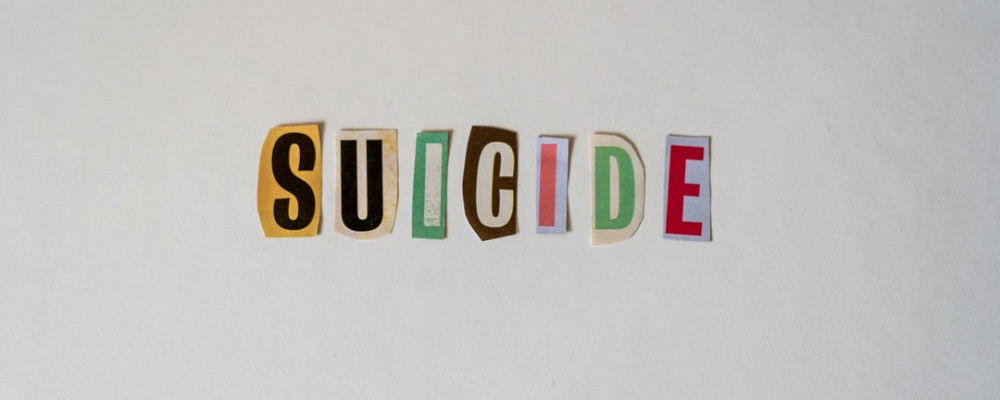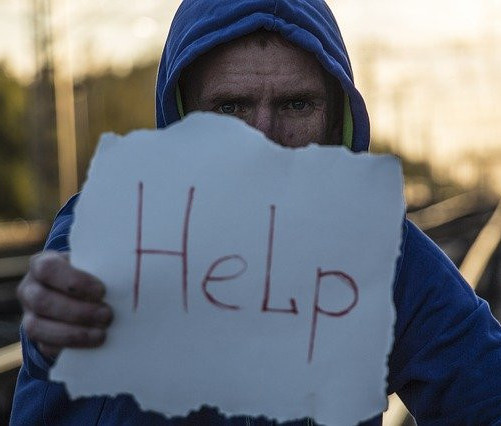
The thought of loss and the actual demise of a loved one is devastating even when the person is old, even chronically ill with debilitating illness. If you have ever been this distressed at losing an aged person, you can now begin to compare it to the unfathomable feelings and disaster that accompanies the tragic loss of a nursing mother especially from something as preventable as a postnatal suicide.
Postnatal suicide is a life situation you will not wish even your worst enemy as it comes with so many personal, family and community repercussions ranging from the physical, to the emotional and even to managerial repercussions. It affects all aspects of the life of the ones left behind from the husband, to the children and to parents and siblings even up to the wider community.
What is Postpartum Suicide
Postpartum suicide is a suicide that occurs in a woman following childbirth and up to the first year of birth. It is not common. In fact, it is a rare but tragic outcome especially in women with undiagnosed and untreated severe psychiatric illness following delivery hence to be able to detect this and address the multiple factors involved in maternal suicide, we must have a high index of suspicion and address matters urgently in the early stages.
Only few studies unfortunately have been able to address the issue of suicide postpartum even though the numbers of women committing suicide following childbirth has been rising steadily, almost tripling in the last decade.
This paucity of research and data in this area is worsened by the non classification of postpartum suicide as a separate entity rather maternal suicide is lumped together in the maternal mortality statistics as incidental or accidental deaths making it difficult in some cases to be able to predict it which ultimately results in disaster and therefore leading to loss of a loved one.
The risks can be detected early and adequately taken care of if adequate attention and the necessary resources can be deployed to addressing this public health crisis that is looming larger by the day.
Risks Associated
Psychiatric illness – Psychiatric illness can predate a pregnancy and the patient will already be under the care of a mental health specialist and this continues ongoing in pregnancy and following childbirth. The need to continue your medication will be emphasized and the benefits to your overall heath will be noted by the care giver as some women will assume that the psychotropic drugs will be detrimental to the unborn baby and may stop the medication without proper advice. This is disastrous.
The major risks actually are in women who develop psychiatric illness in pregnancy that goes undetected as they may be mild and those women that develop psychiatric illness following delivery and was undetected while in hospital. It has been assessed that the majority of suicides occur in this latter two groups and special care should be taken with these groups of women.
Abuse – If you have endured or suffering from any form of abuse either substance, partner or physical abuse in childhood or that is ongoing, you are at a higher risk of psychiatric illness and hence prone to suicidal thoughts and ideation and may go on to commit suicide especially when these abuses are combined with the stresses of attending to a newborn baby.
Low income – There is an association between poverty and the likelihood of adverse mental outcomes and when you are in the low income bracket, you have a tendency to be stressed about your situation and when coupled with the stresses associated with pregnancy and delivery there is a greater likelihood of mental disorders that can culminate in postnatal suicide especially when there is lack of support and encouragement.
Young mothers – Young mothers, unmarried mothers and teenage mothers are engaging in motherhood for the first time and are usually unprepared for the events and problems of dealing with this phase of life. This is a classical cause of suicidal thoughts and ideations as you are faced with scenarios that without social and community support you will find it difficult to cope.
Racial groups – A strong association between different racial groups and postpartum suicide has been made and this is related really to low income situation, lack of social support and community support and being taken from familiar grounds to unfamiliar locations with the attendant problems of social isolation and all these tend to affect racial groups differently being more common in societies that have experienced racial discrimination and abuse in the past.
How to Predict PPS
To be able to predict the likelihood of a postpartum woman going on to commit suicide we will have to be able to develop the ability to have a high index of suspicion as the manager and listen to her story. Do not neglect any aspect of her history as that is the basis of our ability to nip this early in the bud.
Prediction can be classified into antenatal detection strategies, intrapartum detection strategies and postnatal detection strategies.
Antenatal
Obtaining a detailed family and social history during the antenatal visit is important in determining if there is any history of substance abuse and alcohol ingestion and quantity. Any prior history of suicide in the family, social support available to the patient in pregnancy including income levels of partners and any support aside this.
Intrapartum
Your reaction to the labor process with the associated stresses of labor can trigger off mental stress that can last beyond this phase of labor into the postpartum period. Duration of your labor is critical as prolonged labor is associated with more mental stress. Any crisis during labor like postpartum hemorrhage or eclampsia, any incidences of mood swings during labor from excessive cries to extreme calmness in the face of pain may be a red flag especially if you have emotional issues during pregnancy.
Postnatal
The postnatal period is a particularly delicate period for mothers as once you have delivered successfully there is a tendency for the world to look beyond you and shout : thank God all is now well. Meanwhile, the postnatal period is when your troubles begin exposing the precarious nature of the postnatal phase of life to a woman’s well-being.
Motherhood is rife with so many challenges and mental health challenges is one of the most troublesome challenges facing a woman postnatally unfortunately it is the one that gets the least attention from caregivers with the erroneous impression that pregnancy has ended hence – All is well.
Before discharge from hospital
Look out for mood swings before discharge, how the mother relates to the baby, is she breastfeeding the baby or refusing to breastfeed the baby, excessive sleepiness or severe sleep deprivation, socially isolated with no visits from family and friends even while in hospital, any challenges with the babies medical condition and how she responds to the situation.
At home
Ongoing sleep deprivation and anxiety disorders that worsens at home, motherhood stresses at home especially with lack of support from partner and family and all others stressors heightens the likelihood of depression with the attendant risks of thoughts of suicide that can actually result in implementation if these are not addressed.
Postpartum suicide prevention strategies
Antenatal strategies –
- Improve screening of pregnant women antenatally especially screening for mental health
- Proper antenatal care for all women as antenatal classes exposes women to others with same or similar complaint and is on its own a healthy effective and inexpensive counseling session as they interact even informally.
- Remove accessibility to lethal objects and means as this makes it an effortless traumatic and easy escape when severely depressed
- Engage non psychiatric healthcare workers and involve them in the management of pregnant women and their babies
Postpartum strategies –
- Good motherhood care and support especially in the postnatal period with all its stresses.
- Specialized outpatient clinic following discharge for ongoing care of at risk cases even before the 6 weeks postnatal visit.
- Specialized perinatal psychiatric teams to manage cases of mothers with anxiety, depressive and psychiatric illnesses.
- Social workers to visit at risk mothers at home to ascertain how they are coping in the community.
- Reinforce belief systems in the community that discourage suicide.
Conclusion
Postpartum suicide is an under detected and under treated mental health challenge that needs our attention urgently as different studies in different societies have exposed the fact that more and more women especially have had suicidal thoughts, ideations and even attempts in the postpartum period from a variety of factors not necessarily related to depression or mental illness but from issues of lack of social support, financial issues, racial discrimination and other forms of stress in the postpartum period.
By instituting early detection strategies, and proper and adequate follow up of at risk women this unfortunate tragic outcome can be prevented.
Dr mawa
mypostnatalmanagement.com
To your Postpartum health and freedom
Please if you have any comments, suggestions or ideas about postpartum suicide that you wish to share with us kindly use the comments box below.


Hello Dr Mawa,
What a heavy subject! I had shivers going up and down while reading the article! I think everyone is somewhat aware of the risks of postpartum physiological stress on the woman but being lucky enough with my wife to not have any grave symptoms I did not realize how much of a problem this is overall and how many people are affected by it!
You opened my eyes to lots of the key signs to watch for and I feel that in the future if we are lucky enough to have another child I will be 100% more attentive to my spouse and I will make sure to give even more support than I did in the past!
Great read!
Thank you Dr Mawa
Thank you. Maternal suicide is a growing problem in our community that is overlooked by the reporting parameters we have adopted and there is need for reemphasis on the risks and start early to recognize and effect appropriate remedies early in pregnancy and Postpartum.
Wow. This is really nice and some good stuffs you gave put together here. I never knew suicide can be predictable. This is really educating and an eye opener for me. From all I have learnt in this article, I can now educate my family and loved ones on how to go about this.
Thank you. Yes suicide is preventable if we can institute simple measures and note the red flags and warning signs. Communication love and support postpartum is very important.